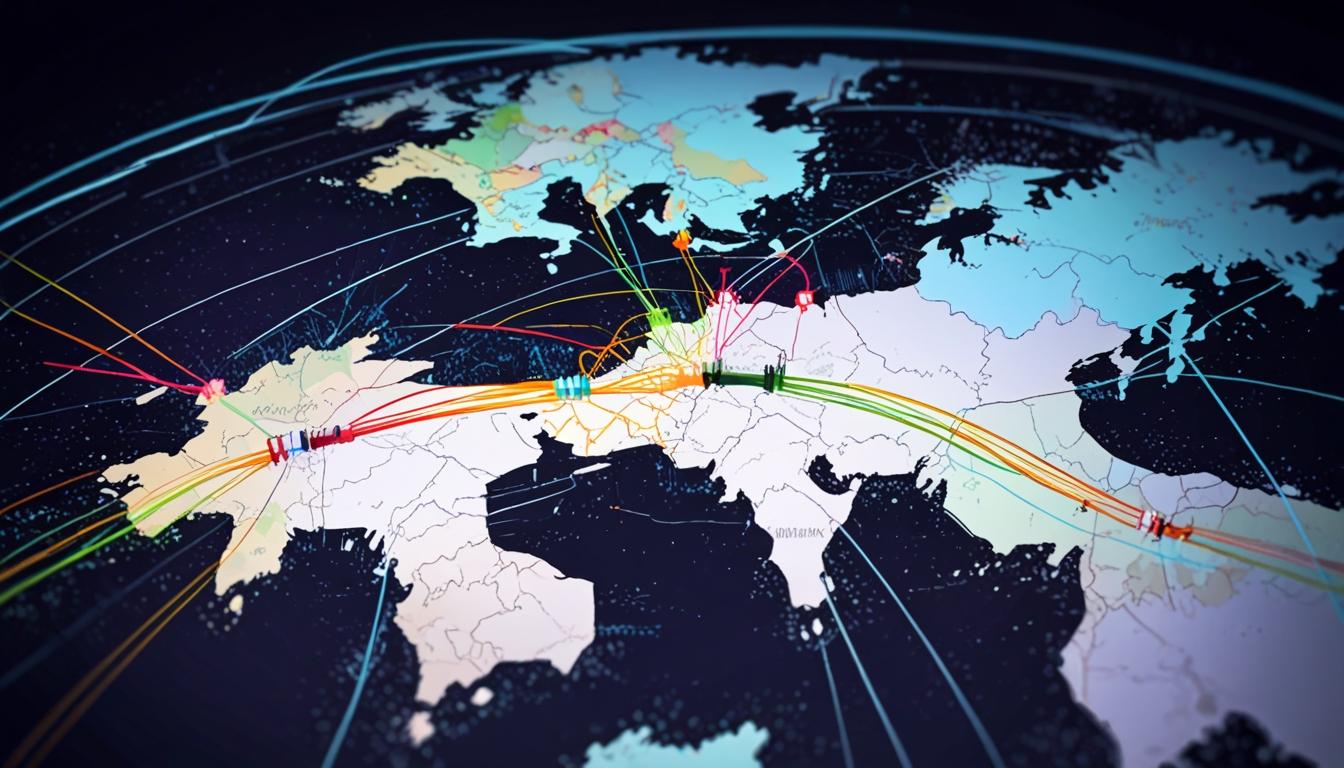In a climate marked by fierce competition and financial scrutiny, alternative network providers (altnets) are striving to redefine their roles within the UK telecommunications landscape. Recently, several altnets have underscored their impact on local economies and their strategic importance to the broader community through a series of studies and reports that highlight the value of increasing fibre connectivity.
Fibrus, for instance, recently announced that its network construction in Northern Ireland has contributed £431 million to the local economy since its launch in 2020. This impressive figure, as outlined in a report by Grant Thornton, includes £74 million from operational activities such as wages and £271 million from supply chain investments. The total Gross Value Added to the local economy was reported at £217 million, highlighting the multifaceted impact of infrastructure projects on regional economies.
In a similar vein, CityFibre has begun to draw attention to its Project Gigabit initiatives, particularly in agricultural circles. A recent survey revealed that 60% of farmers believe improved internet connectivity is essential for their businesses. Key advancements in precision technology and better administrative tools were noted as significant benefits that could enhance productivity within the sector. This reinforcement of connectivity as a cornerstone for economic growth demonstrates the inherent value of altnets beyond mere service provision.
A more inward-looking survey conducted by Neos Networks of 100 senior decision-makers at UK fibre altnets yielded insights into the sector's ambitious plans. Despite around one-third of respondents expressing aspirations to position their businesses as national players through partnerships or mergers, the primary focus for many is on enhancing customer satisfaction and service diversification. Only a third prioritised further network construction, while just over 20% anticipated significant improvements in average revenue per customer in the coming years. This paints a complex picture where operational excellence often overshadows expansion ambitions, revealing a sector focused on consolidating its gains in a still-challenging economic environment.
Despite these positive narratives, the landscape for altnets is fraught with challenges. Collectively, altnets reported over £1 billion in losses during 2023. Factors contributing to this downturn include escalating operational costs, difficulties in securing financing, and slow consumer adoption rates. Industry analysts predict a wave of bankruptcies and consolidations ahead, as many players struggle to pivot toward profitability amidst a backdrop of falling valuations and rising interest rates.
In an environment of consolidation, industry trends suggest significant strategic movements are underway. A notable case is the anticipated merger between Netomnia and Brsk, which, upon finalising, will create one of the largest altnets in the UK, valued at approximately £1.1 billion. This merger, along with CityFibre’s recent acquisition strategies, exemplifies a sector eager to bolster market presence while seeking sustainable operational models.
On the consumer front, companies like Community Fibre have recently reported breakthroughs, with the firm achieving its first-ever profit, recording £8 million in EBITDA for the 2024 fiscal year. Despite operating within a challenging financial landscape, marked by a £118.5 million pre-tax loss due to infrastructural investments, the company experienced an impressive 82% revenue increase. Such developments have led industry observers to consider Community Fibre a strong contender within the competitive market.
As awareness of the digital divide grows, efforts are being made to improve access to high-speed broadband, particularly for underserved regions. The Welsh Government has announced plans to launch a procurement exercise aimed at extending high-speed broadband to approximately 84,000 premises lacking superfast infrastructure. This initiative reflects a national recognition of the importance of inclusivity in connectivity and the pivotal role altnets play in bridging gaps in digital access.
Overall, while the altnet sector encounters turbulence, it is also seizing opportunities for growth and innovation. From investments in infrastructure to collaborations aimed at enhancing service offerings, altnets continue to position themselves as vital components of the UK's digital ecosystem. With the recovery of the broader economic landscape anticipated in future, the ultimate challenge will be transforming current ambitions into sustainable, profitable realities.
Reference Map
- Paragraph 1: [1]
- Paragraph 2: [1]
- Paragraph 3: [1]
- Paragraph 4: [2]
- Paragraph 5: [5], [6]
- Paragraph 6: [4]
- Paragraph 7: [6]
- Paragraph 8: [1], [2], [7]
Source: Noah Wire Services
